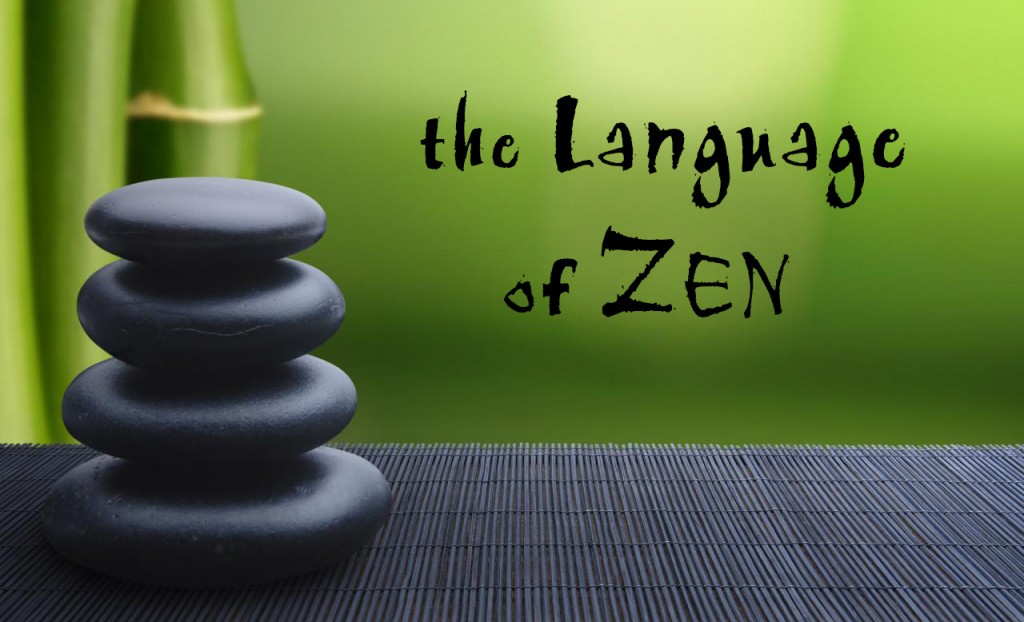 I am you.
I am you.
But I am not me.
This may sound strange, like poetry, a metaphor or a Zen riddle.
Yet I assure you it is simple, basic, obvious truth.
Because there is no separate, independent self-nature, of course I am you. How could I not be?
Because there is no separate, independent self-nature, how could I be me?
There is nothing I am not, except me. Me would be a separate, independent self, which I cannot be.
We often see the writings of ancient Zen masters as some cryptic metaphor or secret language we are certain must mean something else, its true meaning hidden from us. But usually it is simply the straightforward experience of the moment.
I am you.
But I am not me.
Mountains are rivers and rivers are mountains.
When you believe that there is a separate, independent self-nature and you are it, the language of Zen makes no sense at all. The language of Zen is written by people who no longer believe in nor experience a separate, independent self-nature. The illusion of separation has fallen away. Seen in this way, the writing is very clear and simple.
When we are free of this illusion of separation, we can also use words like mountains are mountains and rivers are rivers. But they do not mean the same thing as they did when we believed in separation. Mountains are mountains, but they have no separate, independent self-nature. Nothing does. So we can also say, “I am the mountain. The mountain is me.”
The English language is based entirely on duality. We have names for everything and each name and what that name represents is an independent entity separate from all other entities with a different name. This is useful, but it doesn’t represent truth as it is. It is simply a tool. Because this is the language we were taught, our thoughts correspond and depend on this language. So we perceive a world made of separate disconnected people and things.
When we first encounter Zen language, it throws us for a loop. According to what we’ve been taught and conditioned to believe, it make no sense. “I am you, but I am not me.” But Zen language is actually very straightforward and not cryptic or mysterious at all.
For just a moment suspend this thought that everything is separate from everything else, that you are separate from everything and everyone else. For just a moment, let go of your attachment to this thought. So conditioned are you to believe this and experience life in this way, you may have to let go of all thoughts for a moment. Now what is your experience? It’s nice, isn’t it. Spacious. Free. You feel connected. There’s a great feeling of love, not for any one person or thing, just radiating, for everyone, for everything. From here, listen to these words again. “I am you, but I am not me.” Does it begin to make more sense now? Maybe you would prefer silence. That’s always a good option.
Usually, it takes a while for the sense of separation to fall away. But sometimes it can happen in a brilliant flash. Sometimes Zen language helps that happen. Truth can have a powerful impact to a mind that is ripe and open to it.
‘Empty of self-nature’. That phrase, first clicked in my head when I read Thich Nhat Hahn’s book ‘the Heart of Understanding’. (I think that’s the name. On the Heart Sutra. Btw I always start off writing his name with a sense of trepidation. The spelling is unfamiliar. And I don’t want to ‘disrespect’ your teacher by getting it wrong! Good old ‘helpful ego thoughts’. ?)
Before reading that, as you seem to be saying, the phrase sounded nice but was cryptic: ‘Form is emptiness, emptiness: form. ‘.
So the translation of ’empty’ into ’empty of an independent separate self-nature’ really helped.
Thank you
My brother used to spell his name “Thick”. Probably just to goad me. 🙂 Vietnamese is tricky. I still can’t speak or write the Dharma name he gave me in Vietnamese, which in English is True Virtue. His book on the Heart Sutra is very good. I’m glad you had a chance to read it. I think Thich Nhat Hanh used to say, “Empty must be empty of something. So what is it empty of? It is empty of a separate self.” Or what I’m calling self-nature. His book on the Heart Sutra “Heart of Understanding” is very good at explaining this. Perhaps someday I will be able to explain it as well. 🙂 Thank you, Hazel.